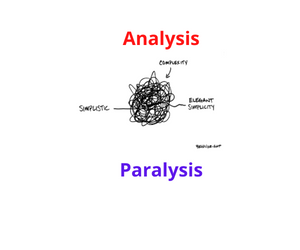This post is inspired by two events. Firstly, an article in the Financial Times on how a US regulator is putting pressure on banks on matters of ethics. Secondly, I was recently asked to address a graduating class from a new academy in India.
The FT article was from July 27th: “New York Federal Reserve steps up pressure on bank ethics” and described how regulatory audits were now including questions on ethics and culture. It quoted the NY Fed’s President, William Dudley, who in a speech suggested that new capital requirements alone might not curb banks’ “apparent lack of respect for law and regulation”. Clearly there is pressure to do the right thing.
This August, I had the privilege of addressing the graduating class from the Operations course at Imarticus, a new academy in India, which is offering diploma courses in investment banking operations and business analysis.Having myself just read the article in the FT, I thought I should devote a large share of the time to talking about doing the right thing.
Post the Great Financial Crisis; the word’s banks have not covered themselves in glory. There has been a constant stream of regulatory cases where banks have been forced to pay huge fines to settle allegations of wrongdoing. In some cases, the settlement has involved actually admitting to breaking the law in one-way shape or form. For example, Credit Suisse pleading guilty to helping U.S. investors avoid paying taxes. Both in that case, as well as in the wide-ranging case involving LIBOR manipulation, this was not just a case of a single rogue trader; rather it involved people from across the bank.
The three key points I would offer comes in two parts: the general and the specific.
General ethics
There is no need to re-invent the wheel. One of the financial world’s most highly recognised institutions, the CFA Institute, which organises the CFA, Chartered Financial Analyst, programme, has spent years refining a view of this and sets the bar in the right place with its “Code of Ethics and Standards of Professional Conduct (“Code and Standards”). I would suggest that you do not need to be studying for the CFA, or even have one, to follow their guidance:
The Code of Ethics maintains that you must:
- Place the integrity of the profession and the interests of clients above your own interests
- Act with integrity, competence, and respect
- Maintain and develop your professional competence
The Standards of Professional Conduct cover:
- Professionalism and integrity of the capital markets
- Duties to clients and employers
- Investment analysis and recommendations
- Conflicts of interest and your responsibilities
Reading the CFA notes in more detail will be time well spent. Many of the topics will not be directly relevant for Ops professionals, for whom I would offer some specific pointers:
Have a procedure and a check it.
1Follow it, don’t just tick it off at the end of the day
2If a process is not working, make sure the MI (Management Information) says “Kaput” and then fix it; i.e. procedure is avid until decided otherwise. Do not just put “0”
3If the process can be improved, discuss with your team. Keep following the existing procedure until you are ready to change
This is what I have refried to as “Sammons’ Law”, named after a boss form my early years at Goldman Sachs. Procedures are essential. Have them and follow them. If they are wrong, change them. If something is broken, make very sure that is obvious to everybody. And, if those procedures involve spending money on maintenance, spend it when it is planned to be spent. Set good standards, follow them and use the following test: “what would this look like in the press?”
Understand “normal” for your business
Have a very good feel for what is “normal” in the business around you. It helped the Ops team, or at least worked in theory, at UBS in the Kweku Adoboli case.
Lessons to be Learned: Routine. That word is open to interpretation. Routine as in a practiced sequence of events or tasks, executed according to plan or it might be used to denote something slightly repetitive, simple even. In Operations, something that I call “Nick & Alan’s regular Ops day law” needs to apply. A day should be “reassuringly boring”. Setting things up so they run like clockwork and you can deal with any unexpected events is both a noble aim, and a difficult target.
Previous Posts: Are available on the 3C Advisory website, click here.
Publications:
The Bankers’ Plumber’s Handbook
How to do Operations in an Investment Bank, or Not! Includes all the Blog Posts, with the benefit of context and detailed explanations of the issues. True stories about where things go wrong in the world of banking. Available in hard copy only.
Cash & Liquidity Management
An up to date view of the latest issues and how BCBS guidance that comes into force from Jan 1 2015 will affect this area of banking. Kindle and hard copy.
Hard Copy via Create Space: Click here
Amazon UK: Click here
Amazon US: Click Here
Thanks for your support and thanks to the numerous contributors.
Share on:



